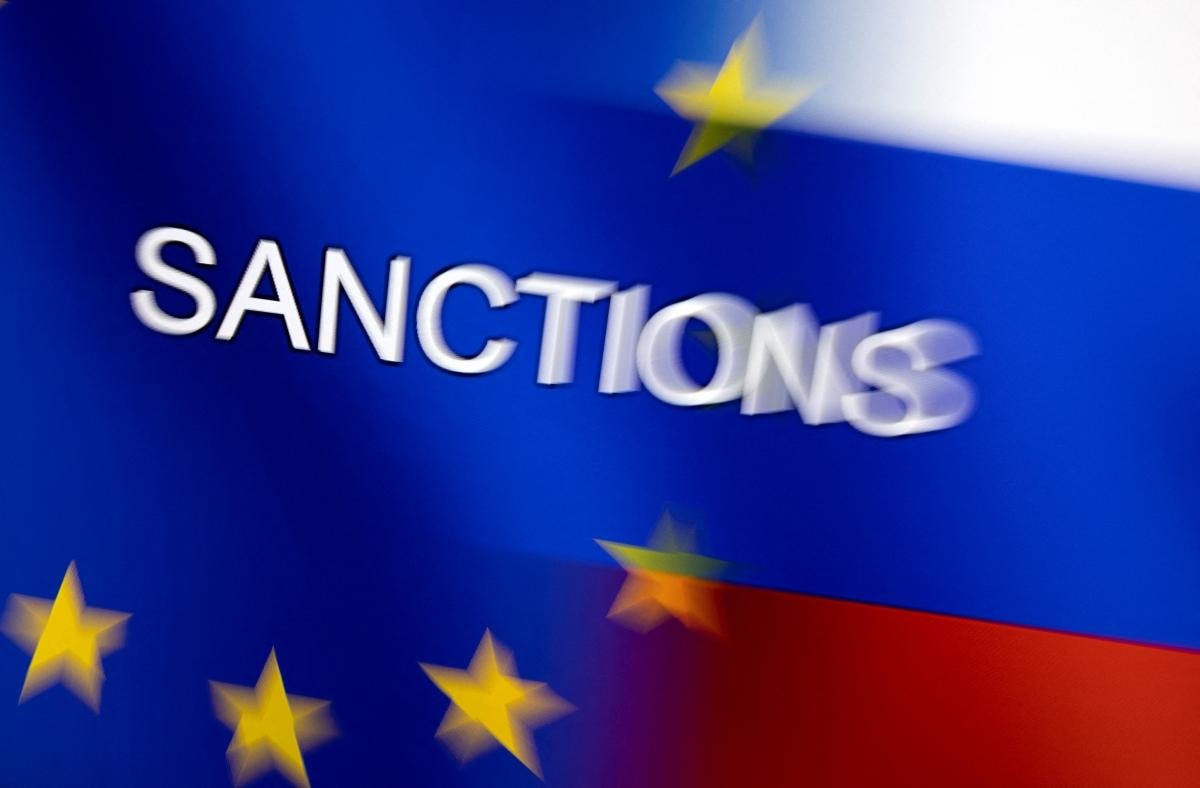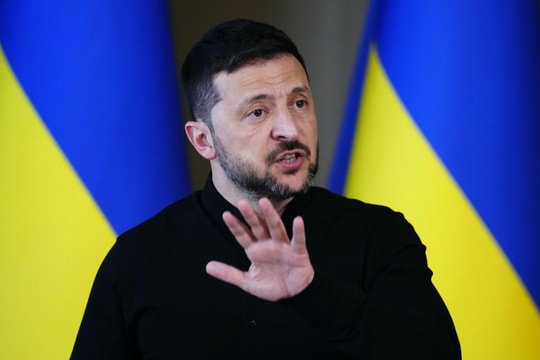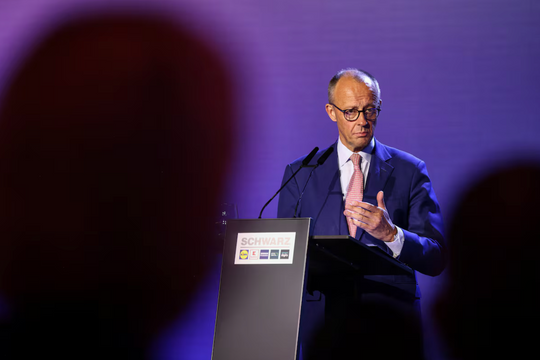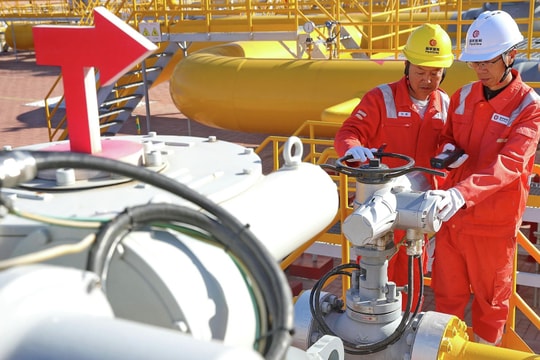Europe is racing against time in its efforts to sanction Russia.
Although the West's economic potential is stronger than Russia's, money alone cannot solve the energy problem facing Europe, as winter approaches.
Are the economic sanctions the West has imposed on Russia working? Can the West stop Russia’s military campaign in Ukraine? The answers to these questions have become more urgent in recent weeks. Every day, as the cost of the conflict in Ukraine only increases, the rifts within the West widen and the conflict threatens to become a protracted war of attrition.
 |
Illustration photo: Reuters |
Peace or harmony?
Doubts are also growing about whether Europe is willing to sacrifice its economic interests.
“Do we want peace or moderation?” Italian Prime Minister Mario Draghi asked in April 2022.
The answer currently seems to be the latter.
Europe has decided to play it safe and not impose sanctions on Russian gas. And as winter approaches, European leaders will become more cautious about keeping power plants running while trying to avoid the risk of gas rationing. They also fear social unrest due to rising energy prices.
From the start, the EU has set out exceptions to its sanctions against Russia, allowing countries outside the bloc to do business with sanctioned entities, including Russian banks and state-owned companies like Rosneft. According to Bloomberg, the exceptions are for entities “that are crucial for transporting food, agricultural products and oil to third countries outside the EU.”
European leaders have called for a stronger response to global economic uncertainty and more decisive action against Russia. French President Emmanuel Macron said on June 13 that France was in a state of “wartime economy” to cope with the impact of the war in Ukraine and to strengthen its strategic autonomy. On July 6, the French government announced it would nationalize the nuclear power company Électricité de France (EDF).
Meanwhile, on July 22, the German government had to provide a multi-billion euro bailout package to energy importer Uniper.
In reality, these measures only reflect the vulnerability of the European economy to energy. After the US and China, the EU is the world’s third-largest energy consumer. Much of the EU’s energy supply comes from countries outside the union, most notably Russia.
Although the West's economic potential is stronger than Russia's, money alone cannot solve the problem of reduced energy supplies caused by sanctions and the Kremlin's plans to cut energy exports.
Race against time
Europe is racing against time, needing not only significant victories for Ukraine on the battlefield but also quick results from sanctions against Russia. Whether the sanctions will work, however, remains a matter of debate.
Senior Ukrainian officials admit that Kiev is in a race against time in this war. Last week, Andrii Yermak, a senior adviser to Ukrainian President Volodymyr Zelensky, said, "It would be a mistake to let Russia drag us into next winter when this must be resolved in 2022."
He and other top advisers to President Zelensky have strongly supported the sanctions and said they are working.
"Ukraine's future depends on sanctions," a Ukrainian official assessed.
“If we look at the numbers and forecasts for this year, we will see that the Russian economy will definitely shrink by 10-15%,” another official commented.
The official listed a series of examples: "Russia's unemployment rate will rise to 10%. More than 4 million people will lose their jobs. We will see Russians' incomes fall by 7%, at least according to forecasts. International businesses have been and are leaving Russia. Sanctions will limit Russia's access to new technologies, putting great pressure on the entire economy of this country."
Ukrainian officials also admit that sanctions would be more effective if they were tightened and loopholes were closed.
“Russia is getting more revenue than before from oil and gas because of trade deals and sanctions loopholes,” a Ukrainian official admitted.
A study published last week by Yale University researchers said the Russian economy is in shambles and refutes Moscow’s assertion that the West is losing more in the war of attrition in Ukraine. Russia’s position as a commodity exporter has been undermined as it has been forced to shift from major European markets to Asia, the study found. The study also found that Russian importers are having difficulty finding key raw materials.
However, the study’s predictions are being questioned. Last month, the International Monetary Fund (IMF) revised its forecast for Russia’s GDP growth this year up from a contraction of 8.5% to a contraction of 6%, saying that exports of crude oil and non-energy products were “better than expected.” The IMF also said that domestic consumption had “remained stable” despite the sanctions. Other economists have also predicted that a contraction of less than 5% for the Russian economy seems a more likely scenario.
The ultimate aim of Western sanctions is to force Russia to halt its military campaign in Ukraine, but there is no sign of that happening. Indeed, the history of collective sanctions does not give Europe much hope.
Sanctions have been used increasingly since the 1920s with mixed results and are often more effective against smaller countries.
“While the use of sanctions has increased, their success rate has declined,” says historian Nicholas Mulder of Cornell University in his new book.
Michael McFaul, a scholar at Stanford University and former US Ambassador to Russia, also admitted that sanctions could take years to be effective. /.








